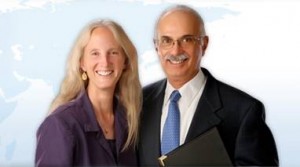Dallas, TX (Law Firm Newswire) March 7, 2019 – On January 31, 2019, the Department of Homeland Security (DHS) published a final rule in the Federal Register announcing important changes to the annual H-1B cap selection process.
Starting April 1, 2019, the United States Citizenship and Immigration Services (USCIS) will conduct the advanced degree exemption and regular cap H-1B visa lotteries in reverse order. The new DHS rule also establishes an electronic pre-registration requirement for employers planning to file cap-subject H-1B petitions.
“Conceptually, having a lottery to allocate available H-1B visa numbers before requiring petition submission makes sense and could save U.S. employers the expense of preparing a full blown H-1B petition only to learn that the Company's petition had not been selected. Like any new program, how the registration plays out will be important,” said Stewart Rabinowitz of the Dallas and Frisco law firm of Rabinowitz & Rabinowitz, P.C.
The DHS final rule said USCIS will begin requiring electronic pre-registration for employers planning to file cap-subject H-1B petitions in fiscal year 2021. H-1B slots will then be allocated against the electronic registrations utilizing the new selection process introduced in 2019. Thus, filings for April 2019 will remain unaffected by the electronic registration rule.
The USCIS lottery selection process traditionally started with the 20,000 master’s cap H-1B petitions first. Then, petitions that were not chosen were added to the pool for the 65,000 petitions to be chosen for the H-1B regular cap limit.
“By reversing the order of the two lotteries and by holding 65,000 general H-1B cap petitions first and then holding the 20,000 H-1B cap lottery for U.S. or higher master’s degree holders, new groups will be adversely impacted, such as secondary schools or other occupations which do not require a master’s degree at entry level,” said Rabinowitz. “Because the implementing H-1B statutory provisions are silent on preferring the special 20,000 H-1B for U.S. master’s or higher holder lottery over the general H-1B lottery, those issues will be examined in the next fiscal year when H-1B registration will take place.”
The DHS is expecting the reversal in the order of the H-1B lotteries to increase the chances of selection for approximately 16 percent of applicants or 5,340 workers with advanced degrees from U.S. institutions. As a result, there will be a decrease in the number of H-1B visas allocated to applicants with non-U.S. degrees and those who hold only bachelor’s degrees. The change falls in line with President Trump’s “Buy American, Hire American” executive order.


